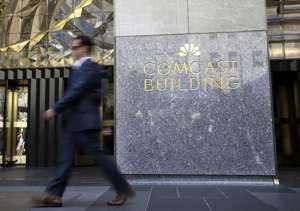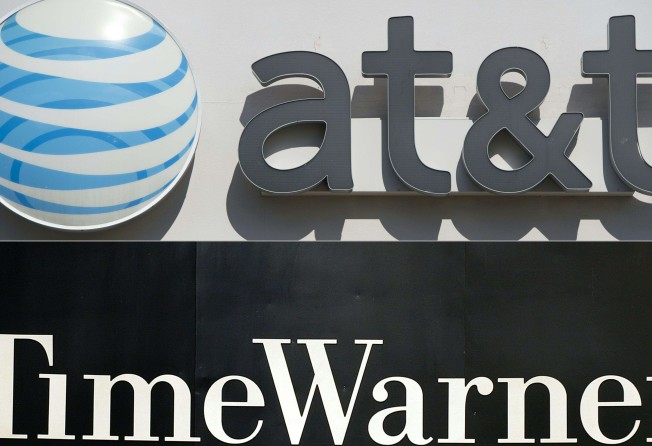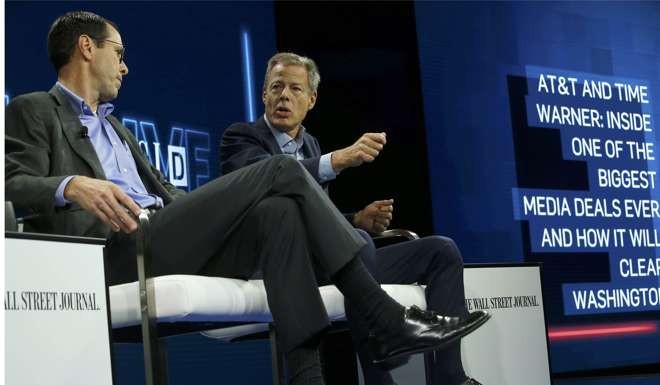
AT&T’s takeover of Time Warner: welcome to new media-tech world of content, connection and convergence
But no one has yet described exactly how AT&T can extract value from its new property without antagonising competitors and regulators

The business of content producers, aggregators and distributors in this current wave of the internet-led media and communications world is being redefined through convoluted change.
The internet is changing consumption habits and forcing the unbundling and repackaging of entertainment.
AT&T has promised to use its proposed $84.5 billion acquisition of Time Warner to revolutionise mobile entertainment. The deal is supposed to unite two leading companies that were important in the evolution of the communications industry.
Randall Stephenson, AT&T’s chief executive explained during a media conference call what is supposed to be a vertical merger.
“We believe premium content is always going to win. That’s been true on the big screen, the TV screen and we believe it is true on the mobile screen.”
He also said: “When you’re trying to change business models…doing that with arms-length [content] deals is really slow. We can innovate much faster and get [services] to market much faster if we own it.”
Huge media mergers attract scepticism because they can lead to higher costs, fewer choices and even worse service for consumers. Consumers should worry if their internet/TV bill doubles as AT&T/Time Warner will be the sole provider controlling connection and content.

According to Bloomberg, JPMorgan Chase & Co and Bank of America Corp are providing a $40 billion bridge loan. The lending commitment should spin off $110 million to $130 million in fees.
The acquisition trail is complicated by other participants hunting for content.
Don’t forget News Corp had pursued Time Warner for decades. Cable operator Comcast bought NBC Universal in 2011. And Liberty Media recently agreed to buy Formula One in an $8 billion deal. Dalian Wanda has stated that it remains interested in buying a major Hollywood studio.
When a company doesn’t have the capacity to create then they buy what other people have created. That’s why investment bankers were created. So vertical integration is the next version of “convergence” as the new tag line in pitch decks to sell today’s media deals.
The easier explanation is that Time Warner may own vast libraries of movies and a roster of shows, but its ability to keep passing on and increasing fees to cable TV distributors such as Comcast is diminishing.

Today, kids would rather directly access their entertainment through smartphones.
AT&T believed that a supplier relationship with television networks thwarts creative and technical innovation. This has become important now that video consumption is migrating away from traditional televisions to smartphones.
However, no one has yet described how AT&T can extract value from Time Warner without antagonising competitors and regulators. It’s own price-to-earnings ratio of 12 times is dwarfed by the 20 times it will pay for Time Warner. And upon integration AT&T needs to find a way to protect Time Warner’s creative processes from its bureaucracy.
AT&T management has bungled every tech initiative they’ve rolled out since the breakup of Ma Bell. Their customer service support could only be described as being designed by Kafka himself. If this matchup is unmanageable this deal will look as unsustainable as a bank buying a pro baseball team. Or even worse- a return to the ignominious AOL-Time Warner marriage.
AT&T’s $49 billion acquisition of DirecTV last year has already revealed a limited technological life because customers are migrating from clumsy satellite TV dishes and cumbersome set top devices in favour of wifi.
Broadcasters and pay-TV groups have been launching digital video services to respond to a growing threat from Netflix and Amazon, which have adeptly combined on-demand platforms with production houses. An upstart like Netflix, which has a market value of just $55 billion, has spawned much fear and uncertainty.
Yet again, this deal shows the inclination for monopolistic/oligopolistic business models by the old school entertainment executives. Creating a number of vertically integrated groups will simply cause people to disengage as they’re already doing with traditional television. Netflix actually champions an independent consumer group who consume entirely through video-on-demand rather than overpriced, bundled channels.
The executives forget that the most important issue for users is not proprietary product, but access to cheap, fast internet connections. Neither policymakers nor telecom executives share this priority. Extracting excess profits from oligopolistic or monopolistic profits is their top priority.
Peter Guy is a financial writer and former international banker